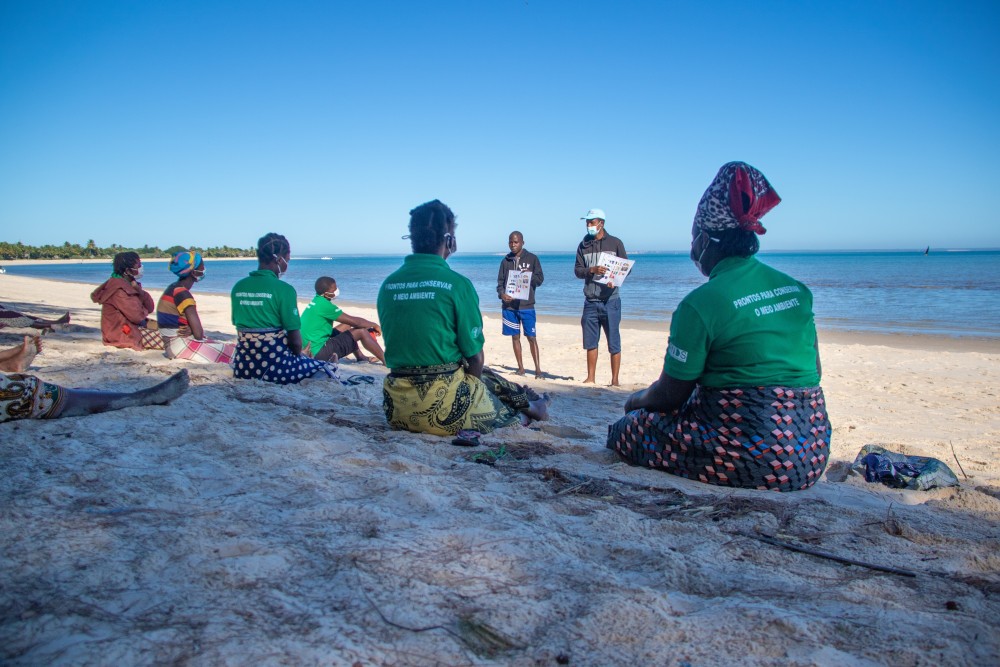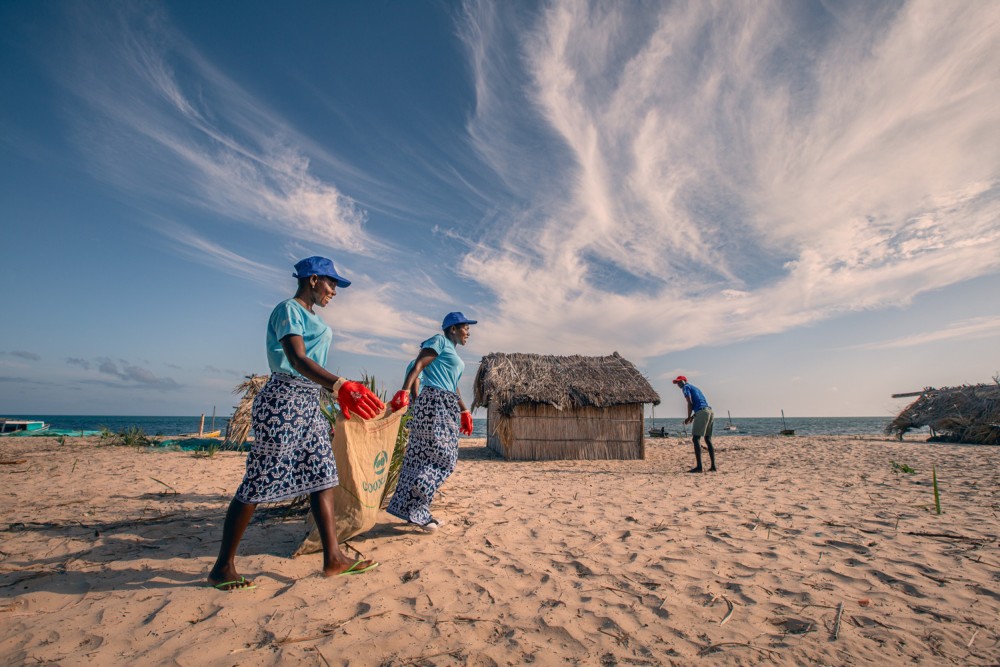The livelihoods of thousands of people rely on the natural resources provided by Bazaruto’s vulnerable ecosystems. Three of the islands are permanently inhabited by over 6,000 local people, governed through traditional councils and relying on the area’s marine resources for subsistence and small-scale commercial fishing. Community development includes engaging with the community, education and sustainable enterprise development, ensuring that local communities benefit from and support the preservation of this archipelago. With the support of local tourism lodges 50 young people were trained in vocational skills and courses in housekeeping, service, and refrigeration were offered in 2022. The Basisa Bazaruto project employs over 50 refuse collectors, who removed over 160 tonnes of waste from the archipelago and its communities in 2022. The recycled plastic is then transformed into paving tiles in Vilankulo.
Community Engagement

African Parks’ community engagement programme has begun to build a firm foundation on which the relationship between the local communities and park management can thrive. In 2022, over 200 meetings were held with the community, and the Community Development Strategy was developed with the participation of key stakeholders.
Education and Environmental Awareness
African Parks continues to provide educational opportunities that support economic and social transformation while raising environmental awareness. The provision of school facilities and learning materials assists many community members to become employable in the workplace. The park has extended its school support to the mainland districts of Vilankulo and Inhassoro, securing education for over 360 pupils.
Sustainable Enterprise Development

Enterprise development is being achieved through the growth of the sustainable tourism industry in Bazaruto Archipelago National Park, not only creating jobs but also stimulating the local economy. The park contributes 20% annually of all tourism revenue to local communities through their respective councils to support projects that benefit the community as a whole.
Income-generating projects, such as conservation agriculture, provide an alternative to the dependence on resources in the park. To aid this, construction of a community skills development centre has begun, 100 young people have been trained in vocational skills and three tourism-related courses introduced at the request of local lodges: housekeeping, service, and refrigeration.
Community Infrastructure Development
The Basisa Bazaruto project employed 51 refuse collectors, who removed over 167 tonnes of waste from the archipelago and its communities. The recycled plastic is being transformed into paving tiles in Vilankulo. The same team participated in other conservation activities, including tree planting to re-establish deforested areas.
